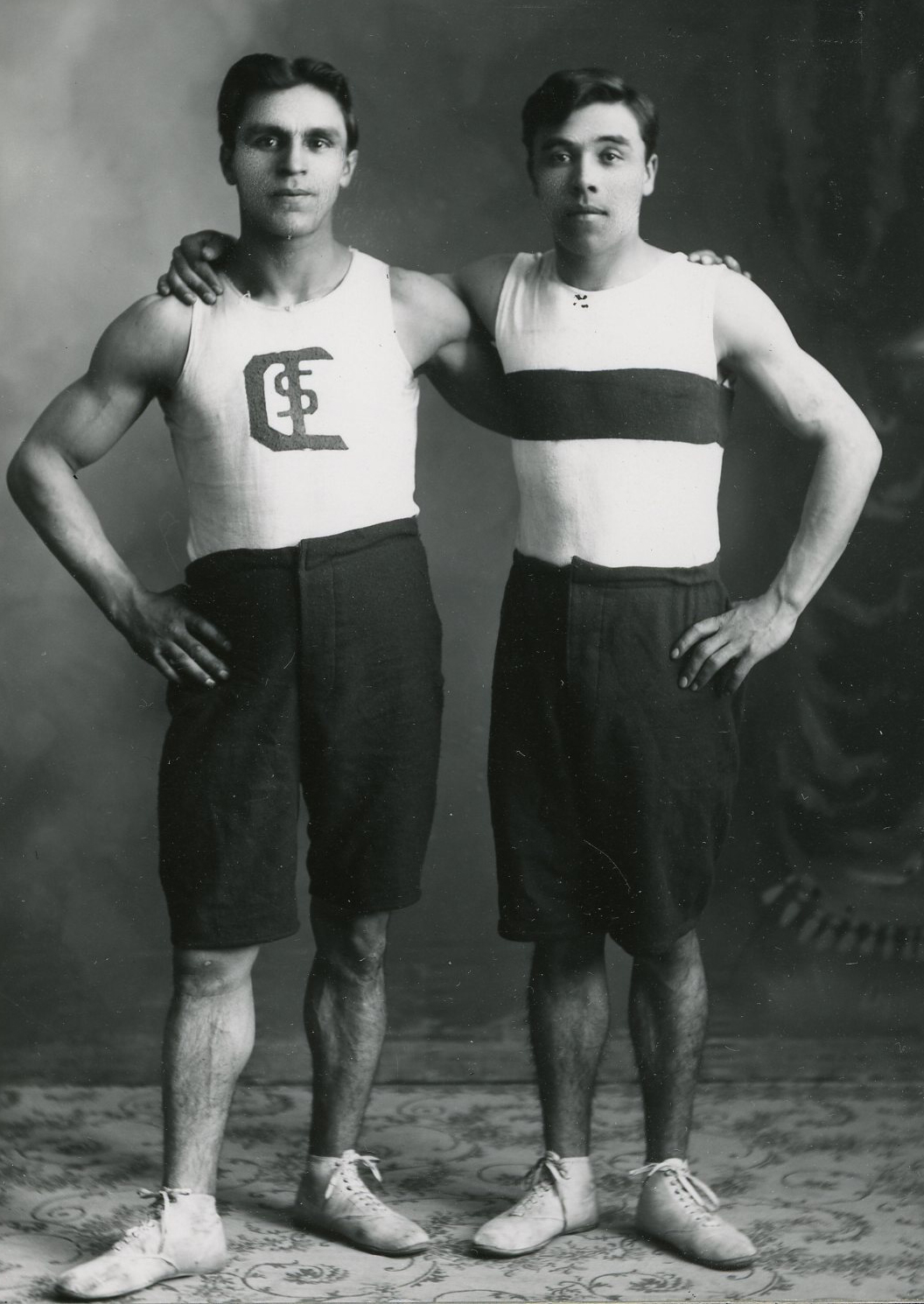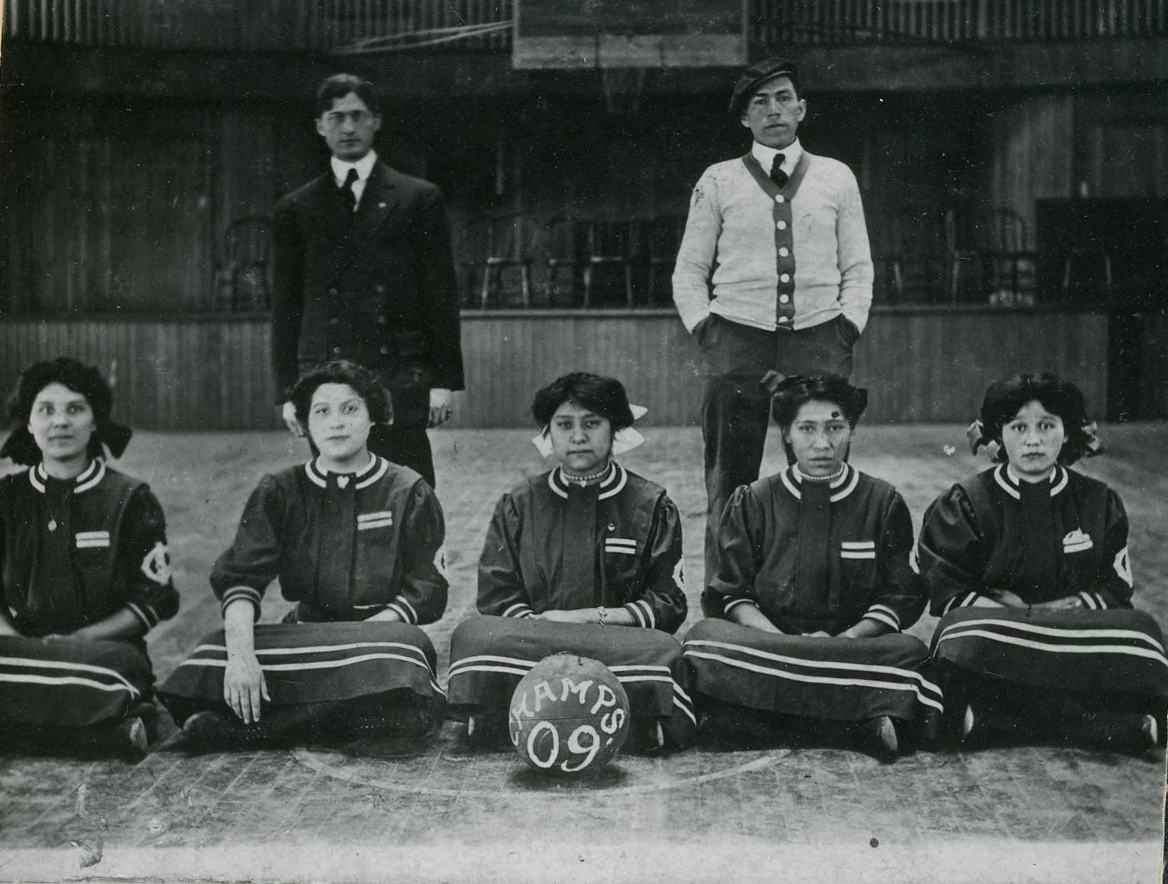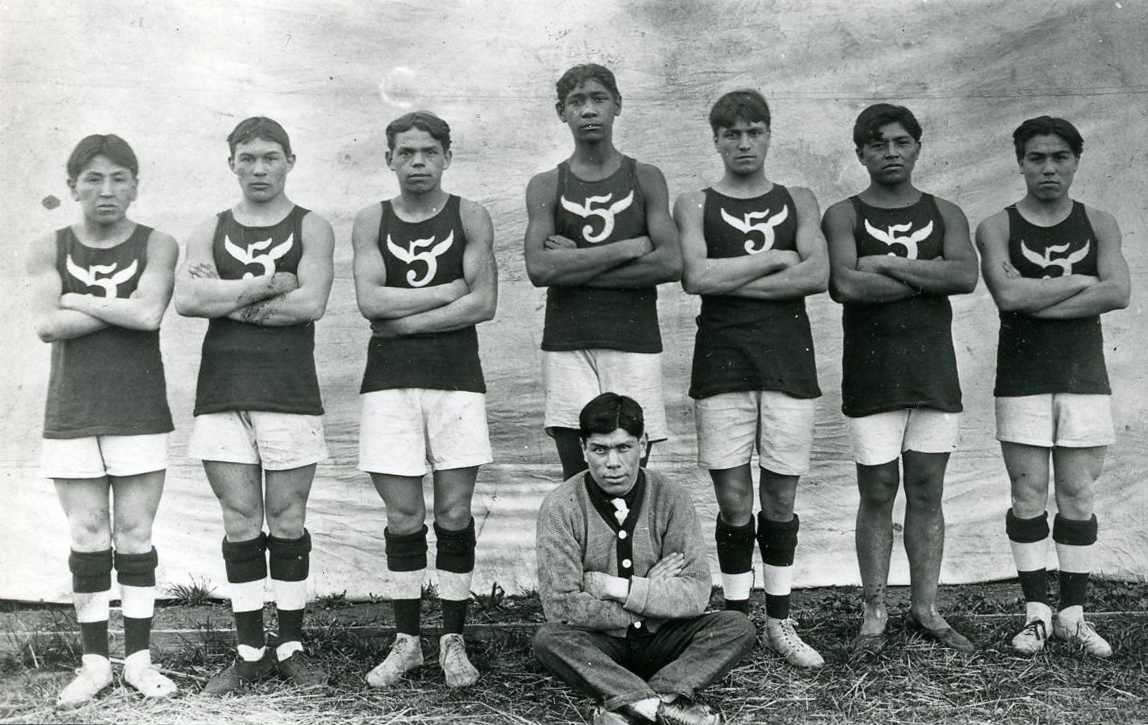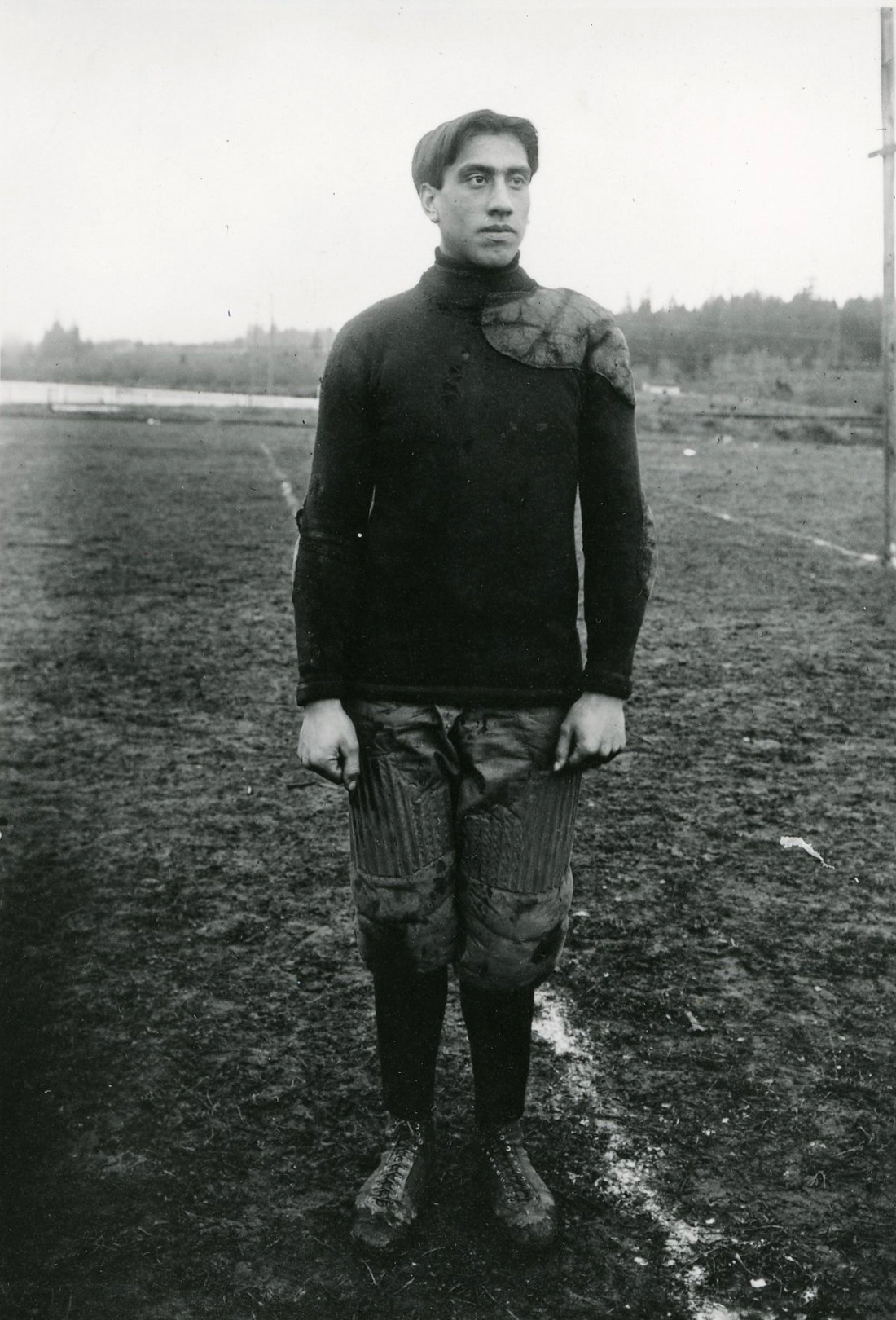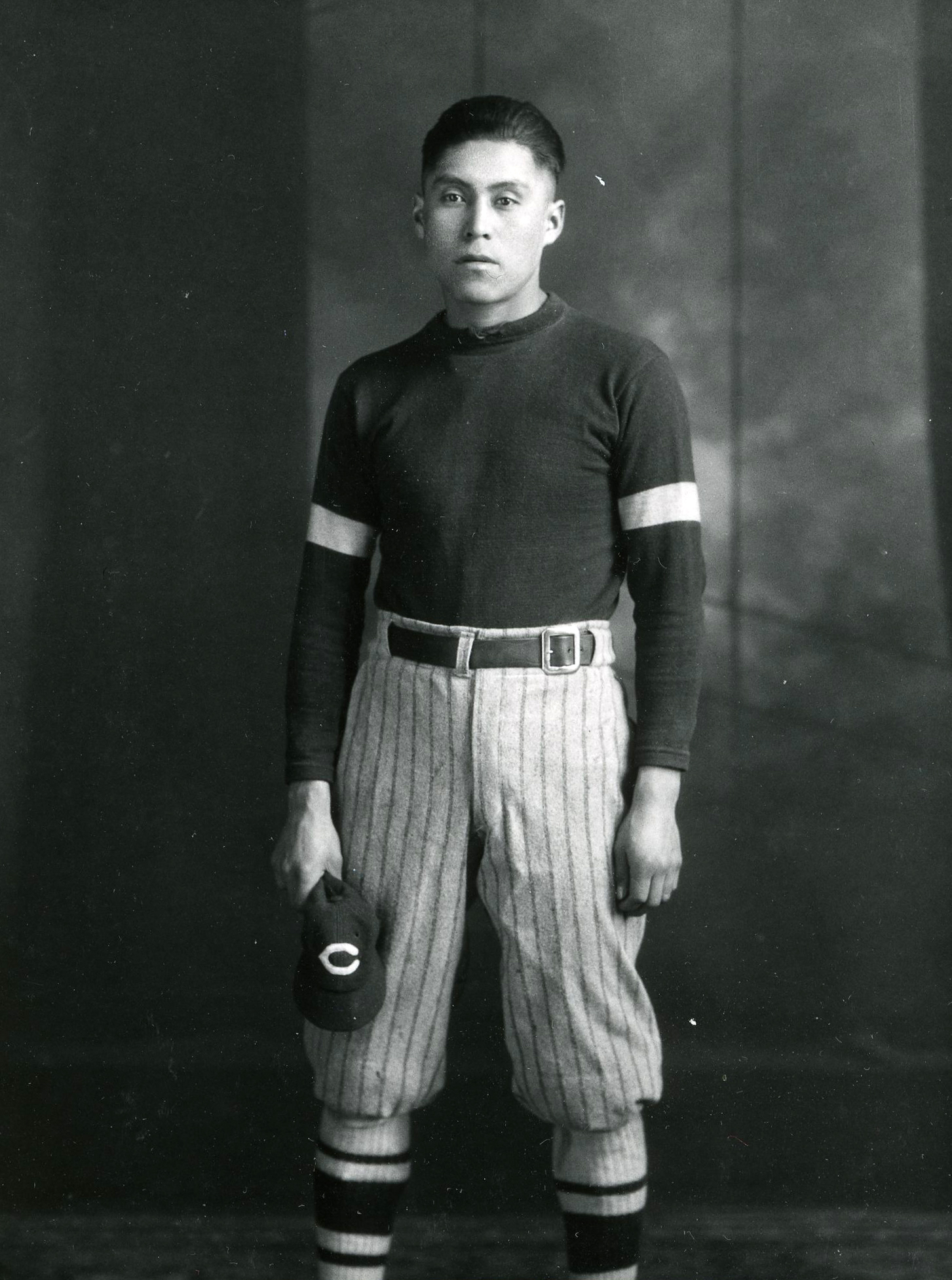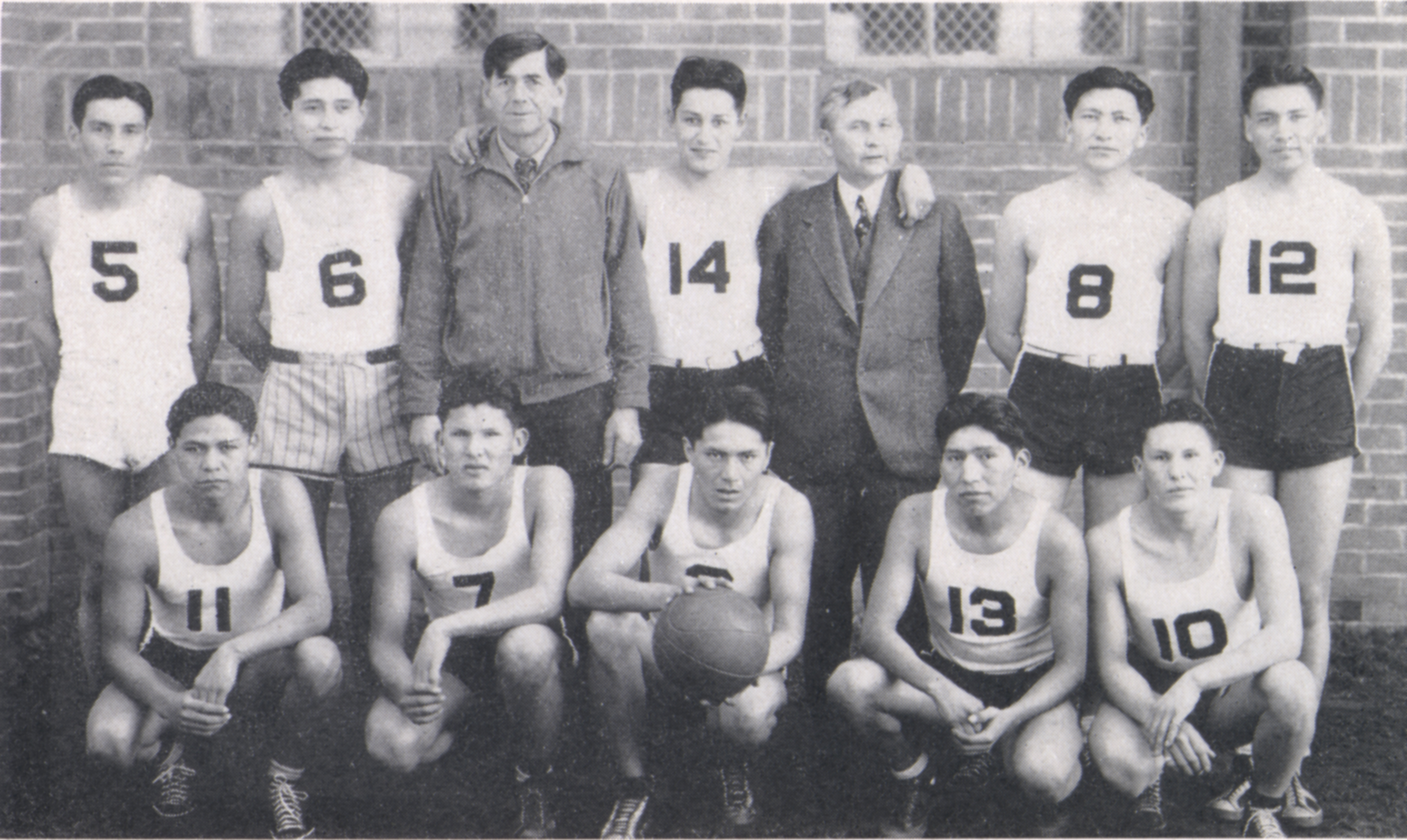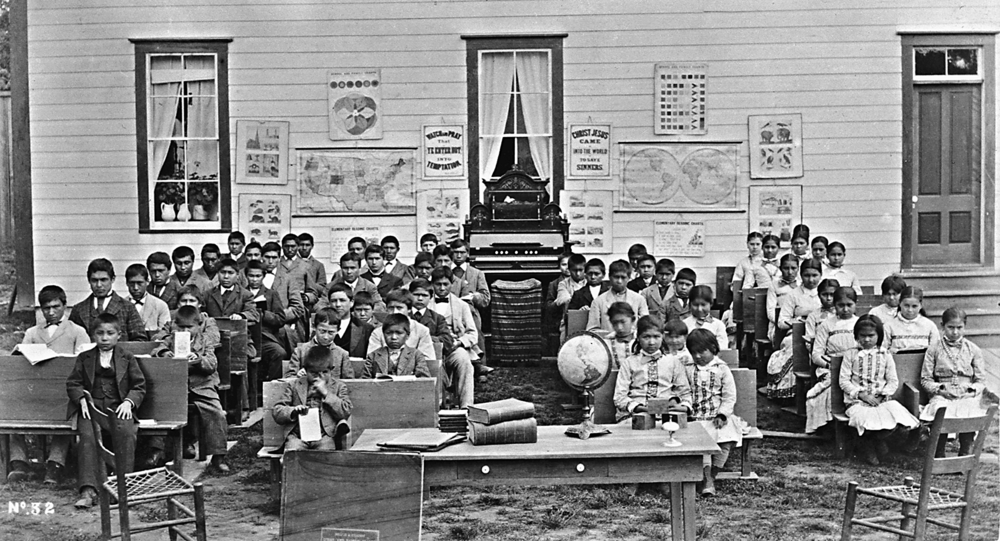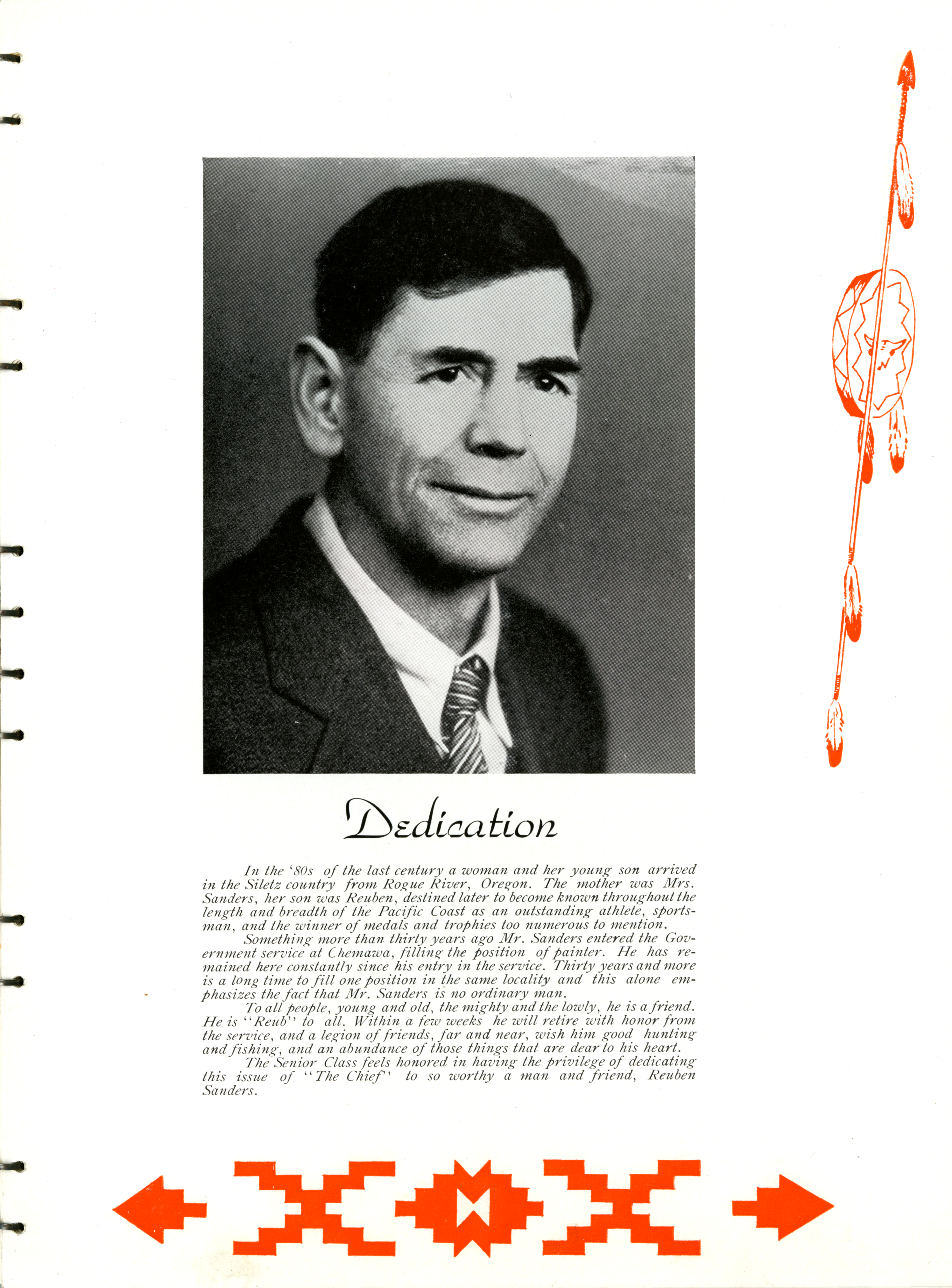Chemawa Indian School has been a leader in organized athletics in the Willamette Valley since the 1890s, winning state titles in football, basketball, track, cross country running, and basketball. Opened in Forest Grove in 1880 and moved to Salem in 1885, Chemawa was the second off-reservation boarding school in the nation. During its early years, its sports teams competed with high schools, colleges, city leagues, and reservation teams, making an important contribution to the development of intramural athletics in western Oregon. Chemawa athletes are primarily from tribes and reservations in the Plains, Southwest, and Northwest, and many are second- and third-generation legacy students.
Chemawa’s athletic programs began in 1894–1895. Athletics programs at the school were developed to improve the character and health of all students. The most important sports for boys were football, baseball, basketball, and track, and by 1903 the most important girls team was basketball. The boys program had first, second, and junior teams in football and basketball, and the girls teams played against college teams, including those at Willamette University.
From the 1890s into the 1920s, a typical season for Chemawa’s boys teams included football games against the Multnomah Athletic Club, the University of Oregon, Newberg (now George Fox University), the Oregon Agricultural College (now Oregon State University), the Salem Capital Athletic Club, Salem High School (now North Salem High School), and the Sherman Indian School in Riverside, California. In 1902 and 1903, Chemawa athletes traveled to play football against the University of California at Berkeley and Stanford University and to play baseball in Washington and British Columbia. In 1908, the baseball team defeated Columbia University at Chemawa.
During the early years of organized play in western Oregon, athletic teams faced few rules and regulations. For example, age restrictions allowed both alumni and visiting students to play on a school’s team. Chemawa athletes also played for other teams in the area, and the better players were paid to play for city clubs and colleges. That practice ended after 1918, when colleges and high school leagues adopted more stringent rules for amateur sports.
Reportedly, there were officiating problems when the Chemawa team played as a visitor. According to the Chemawa American newspaper, some games ended prematurely, with players explaining the rules to officials and calls going against the team. Oregonian headlines labeled Chemawa teams as Reds and Redmen, suggesting that there may have been prejudice against the school’s athletes.
In 1909, Chemawa became part of the Willamette Valley College Basketball League, composed of private colleges in western Oregon (Dallas, Willamette, Philomath, McMinnville, Pacific, and Albany). The Chemawa Basketball League was formed the same year, and games were arranged between departments at the school. In 1912, Chemawa joined the Salem City Basketball League.
In 1914, the Chemawa football team captured the nonconference title for independent schools in Oregon and went on to challenge the leading collegiate team. Chemawa footballers won the OSAA Class B league title in 1944, with Chief Tommy Thompson (Warm Springs) as head coach and Reuben Sanders (Siletz) as assistant coach. Sanders, who is honored in both the American Indian Hall of Fame and the Oregon Athletic Hall of Fame, was a distinguished player for Chemawa from 1895 to 1918 and a coach from 1911 to 1944. Other celebrated players include Joseph Teabo (Grand Ronde; baseball and football), Robert Service (Clatsop; baseball), Leonard Vivette (Grand Ronde; basketball), Sam Morris (Nez Perce; baseball), and Warren “Lefty Wild Eagle” Wilder (Karok; football).
Other Chemawa teams were also successful. Between 1907 and 1912, the cross country relay team competed against the Multnomah YMCA in a forty-eight-mile road race from the State Capitol in Salem to the Portland YMCA. Chemawa won the race in its first four years. The boys cross country team won championships in 1964, 1972, 1981, and 1986. In the 1930s, Chemawa sponsored an All-Star and an All-American men’s basketball team of alumni and was involved in town league play. The school won the state basketball championship for the Big Nine League in 1941.
Chemawa was part of the Tri-River Conference League in the 1980s and is in the Pacwest Conference today. The earliest team name on record was the Chemawa Indians; they later were named the Chemawa Braves and the Lady Braves. The football field is named Reuben Sanders Field in honor of their greatest athlete and coach.
-
![]()
Peter Casey and Edward Green, Chemawa track and field, 1906.
Courtesy Oregon Hist. Soc. Research Lib., Cronise Coll., 003G007
-
![]()
Chemawa championship girls' basketball team, 1909.
Courtesy Oregon Hist. Soc. Research Lib., OrHi37254
-
![]()
Chemawa sports team (unknown sport).
Courtesy Oregon Hist. Soc. Research Lib., OrHi73661
-
![]()
Albert La Chapelle, Spokane Tribe, in Chemawa football gear.
Courtesy Oregon Hist. Soc. Research Lib., 011822
-
![]()
Dandro George, Chemawa baseball, 1923.
Courtesy Oregon Hist. Soc. Research Lib., Cronise Coll., 0160N069
-
![From the Chemawa Chief yearbook.]()
Sanders and the Chemawa basketball team, 1937.
From the Chemawa Chief yearbook. Courtesy Willamette University
Related Entries
-
![Chemawa Indian School]()
Chemawa Indian School
Chemawa Indian School, located in the mid-Willamette Valley north of Sa…
-
Indian Boarding Schools
At the beginning of the twenty-first century, only one Indian boarding …
-
![Reuben C. Sanders (1876–1957)]()
Reuben C. Sanders (1876–1957)
Reuben “Reub” C. Sanders was one of Oregon’s greatest all-around athlet…
Related Historical Records
Map This on the Oregon History WayFinder
The Oregon History Wayfinder is an interactive map that identifies significant places, people, and events in Oregon history.
Further Reading
American Indian Athletic Hall of Fame. http://americanindianathletichalloffame.com
Chemawa American Yearbooks (1927-1939). Willamette University Special Collections, Salem, Oregon.
Chemawa American Newspaper (Historic Oregon Newspapers-Online)
Morning Oregonian Newspaper (Historic Oregon Newspapers-Online)
Daily Oregon Journal (Historic Oregon Newspapers-Online)
Charles Larson Collection, Willamette University Special Collections, Salem, Oregon.

